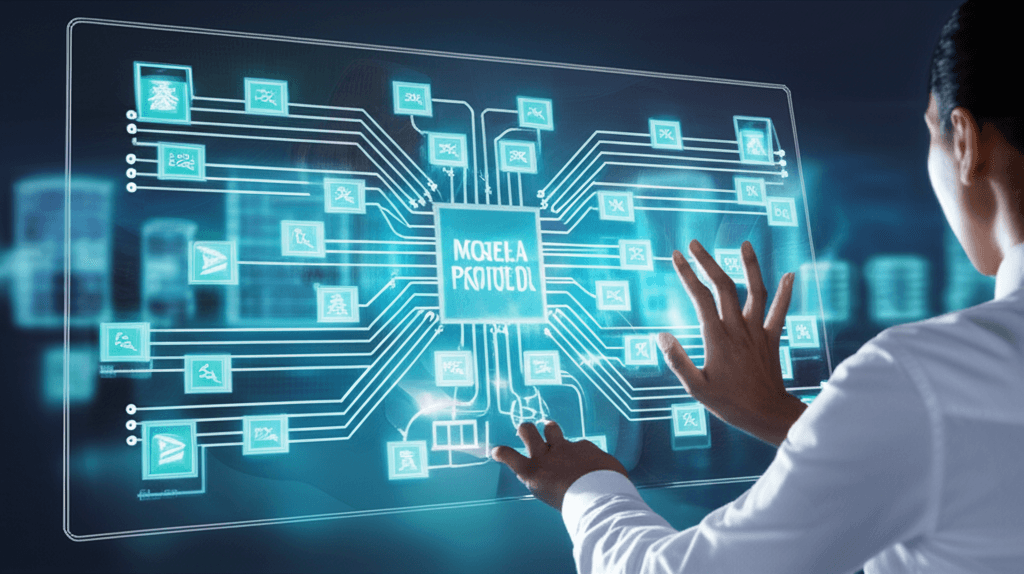Salesforce Agentforce 3: Universal Standard Powers Enterprise AI Scale
Tackling AI's biggest enterprise hurdle, Agentforce 3 offers vital control, observability, and seamless interoperability for scaling digital labor.
June 24, 2025

Salesforce has intensified its push into the burgeoning field of enterprise artificial intelligence with the launch of Agentforce 3, a significant upgrade to its digital labor platform. This new iteration directly confronts one of the most significant hurdles to widespread AI adoption in large companies: the ability to scale, monitor, and control autonomous AI agents effectively. The release introduces a centralized Command Center for observability and, crucially, incorporates the Model Context Protocol (MCP), an open standard designed to enable seamless and secure communication between different AI agents and enterprise systems. This move signals a strategic effort by the CRM giant to create a more integrated and manageable ecosystem for what it terms "digital labor," aiming to transition AI agents from isolated, experimental deployments to a fully operationalized component of the enterprise workforce.
The core challenge that Agentforce 3 seeks to address is the lack of visibility and governance that has hampered the scaling of AI agents within businesses.[1][2] As companies deploy more autonomous agents to handle tasks, the complexity of managing their activities, ensuring their reliability, and optimizing their performance grows exponentially. Without a centralized way to see what agents are doing, how they are interacting with data, and whether they are performing as intended, the risk of errors, inefficiencies, and security breaches becomes a major concern.[1][3] This has been a primary blocker to enterprise-wide adoption.[1][4] Agentforce 3 directly targets this issue with the introduction of the Agentforce Command Center, an observability solution built into the Agentforce Studio.[5][6][7] This "unified pane of glass" provides leaders with the tools to monitor agent health, measure performance through detailed analytics on latency and error rates, and optimize outcomes by analyzing interaction patterns and receiving AI-powered recommendations for improvements.[5][8][9]
A pivotal element of the Agentforce 3 launch is the native support for the Model Context Protocol (MCP).[10][2] Pioneered by AI safety and research company Anthropic, MCP is an open standard that acts as a universal connector, often described as a "USB-C for AI," allowing different AI models and tools to communicate and exchange information securely and efficiently without requiring custom-coded integrations for each connection.[7][11][12] By embracing this open standard, Salesforce is facilitating a new level of interoperability, enabling its AI agents to securely connect with a wide array of external systems, data sources, and even other third-party agents.[13][10][14] This approach allows for the creation of more complex, multi-agent workflows that can span the entire enterprise technology stack. For instance, an Agentforce agent could interact with a PayPal MCP server to generate an invoice or connect with a Box server to retrieve and summarize a signed contract, all while adhering to enterprise-grade security and compliance standards.[13][8] This strategy signifies a move toward a more open and collaborative AI ecosystem, rather than a siloed, proprietary one.[11]
The platform's architecture and capabilities have also been significantly enhanced to support this vision of scalable digital labor. Agentforce 3 is built on an updated Atlas architecture, which promises lower latency, greater accuracy, and enhanced resiliency, including automatic model failover to ensure agents are always operational.[1][6] The platform is also expanding its global footprint and language support, making it more accessible to international enterprises.[1] To accelerate time-to-value, Salesforce has introduced over 100 new pre-built industry actions, offering ready-made solutions for tasks ranging from patient scheduling in healthcare to advertising proposal generation in media.[5][4][9] Furthermore, the AgentExchange marketplace is being expanded with over 30 partners, including major players like AWS, Google Cloud, IBM, and Stripe, who will offer MCP-compatible services.[1][13][10] This combination of a robust, scalable architecture and a rich ecosystem of pre-built tools and partner integrations is designed to lower the barrier to entry for companies looking to deploy AI agents and to help them scale their digital workforce with confidence.[5]
In conclusion, the launch of Agentforce 3 with MCP integration represents a significant step in the maturation of enterprise AI. By directly addressing the critical needs for observability, control, and interoperability, Salesforce is laying the groundwork for companies to move beyond isolated AI experiments and begin building a truly integrated digital workforce. The emphasis on a "digital labor platform" that unifies agents, data, and applications underscores a future where human and AI workers collaborate seamlessly across all business functions.[1][5] While the journey to fully autonomous, enterprise-wide AI is still in its early stages, this release provides a foundational infrastructure that makes the prospect of scaling AI agents a more tangible and manageable reality for businesses worldwide. The success of this initiative will ultimately depend on how effectively organizations can leverage these new tools to not only automate tasks but to fundamentally transform their productivity and business processes.